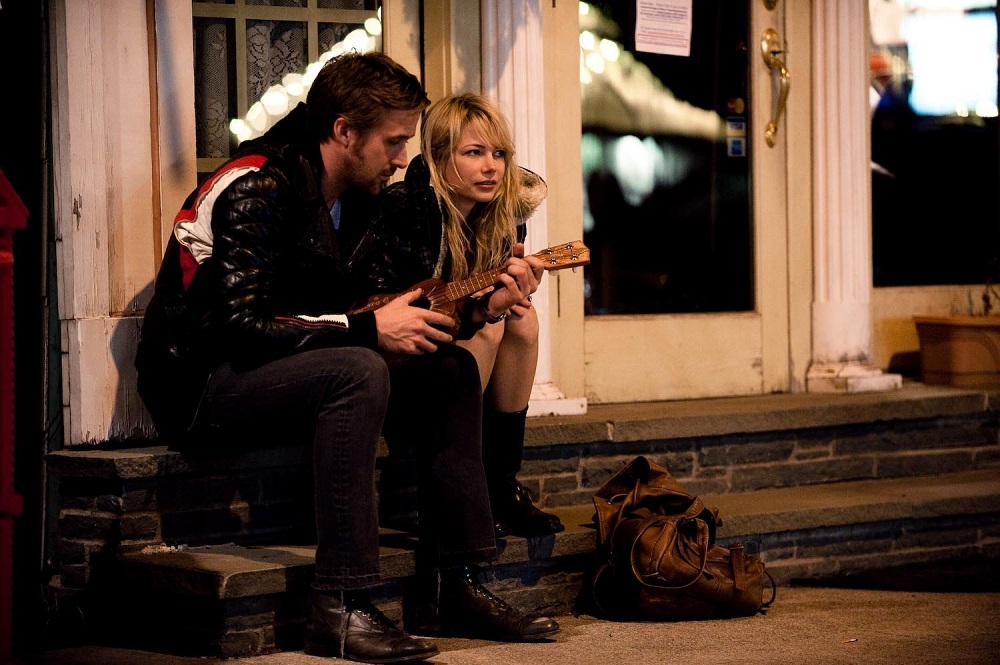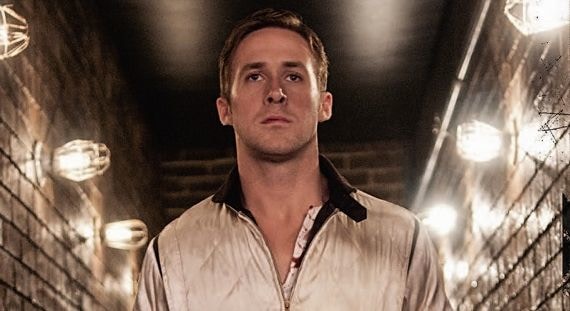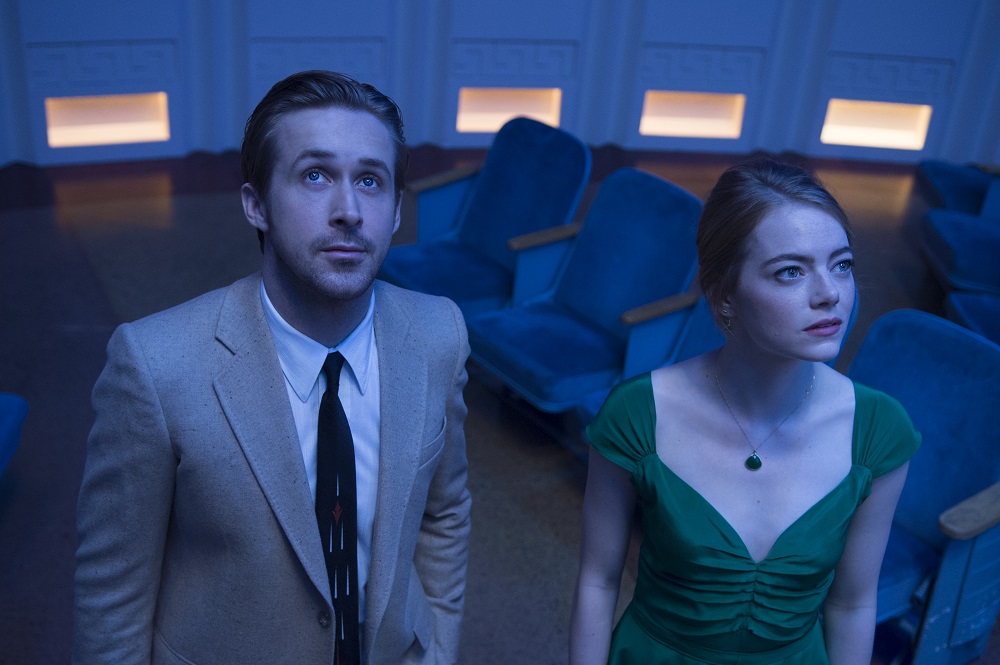They’re calling Black Swan BS on some of the dance websites, and while they’re right about the dancing, this is a whale of an enjoyable outing to the flicks: lush, Gothic, psycho and flavoursomely OTT. I don’t much care that Natalie Portman can’t dance for toffee - Tobey Maguire probably didn’t satisfy jockeys with his style in Seabiscuit, or Hilary Swank the boxing clubs in Million Dollar Baby. It’s down to the character study, and who wants well-balanced yoghurt-eaters at a ballet movie anyway?

Time, and a scruffy beard, can't dim the unshowy magnificence that is Robert Duvall, the actor's actor among American film stars who turned 80 earlier this month. That milestone might represent a cue in some quarters to hang up your cleats or, at least, to coast into old age via a kindly supporting role or two, of the sort Duvall essayed in Crazy Heart.

Broadcast News gets reinvented for our ever more frivolous television age, alongside healthy enough dollops of Working Girl, The Devil Wears Prada and Confessions of a Shopaholic (among others) to make Roger Michell's latest Hollywood entry seem like one long, extended pitch. That this comes from the same man who in the past year or so has directed - superlatively - Rope and Tribes on the London stage itself testifies to the divisions between the commercial and the personal, between catering to the marketplace and feeding one's soul, that this movie, in fact, is about. The film itself may not seem plausible for a single minute, but the tensions it describes could not ring more true.
Broadcast News gets reinvented for our ever more frivolous television age, alongside healthy enough dollops of Working Girl, The Devil Wears Prada and Confessions of a Shopaholic (among others) to make Roger Michell's latest Hollywood entry seem like one long, extended pitch. That this comes from the same man who in the past year or so has directed - superlatively - Rope and Tribes on the London stage itself testifies to the divisions between the commercial and the personal, between catering to the marketplace and feeding one's soul, that this movie, in fact, is about. The film itself may not seem plausible for a single minute, but the tensions it describes could not ring more true.

The classical-music industry loves dead icons; witness the endless reissuing and remarketing of recordings by Kathleen Ferrier and Jacqueline du Pré. Canadian pianist Glenn Gould died from a stroke at the age of 50 in 1982 and his seminal Bach discs have never been out of the catalogue since. Françis Giraud told Gould’s story on screen before in his 1993 film Thirty Two Short Films About Glenn Gould, an imaginative series of vignettes depicting scenes from Gould’s life.

The multiplatform franchise might sound like a modern concept - the film that leads parallel lives as video game, TV spin-off, T-shirt and toy. But no, ‘twas ever thus. Entertainment moguls have always known how to squeeze every last dime out of a popular hit, none more than The Green Hornet. Created in Detroit as a radio drama in 1936, it has buzzed across the decades and the genres, from film to comics to television to fiction and back to comics again. It’s now returned to the big screen with a bang. And a nod and a wink.

The American indie Blue Valentine was heralded in October by a sexy W magazine cover of its stars - Ryan Gosling smooching Michelle Williams’s temple as she parts her becrimsoned lips and gazes provocatively at us - and the restrictive NC-17 rating (the old “X”) granted it for “its shocking, gory depiction of a dying marriage”. Both cover and rating were wholly misleading publicity fillips for the movie, which isn’t glamorous or gory, or even pornographic: the shots of Williams’s Cindy being taken from behind by one boyfriend and receiving oral sex from another - Gosling’s Dean, with whom she’s newly in love - are inexplicit and more functional than erotic.
By early December, the Weinstein Company, which had bought the film for distribution when it bowed at Sundance, had successfully campaigned to have the rating changed to an R (under-17-year-olds require an accompanying parent or adult guardian) while retaining, of course, the whiff of scandal. Having opened in the US on 29 December, Blue Valentine had turned a profit on its $1 million cost by last weekend and rolled out from four cinemas to 40.
Derek Cianfrance’s long-gestating working-class melodrama, which crosscuts at an accelerating pace between Cindy and Dean’s miserable present in rural Philadelphia and their courtship in Brooklyn and Queens, the separate strands climaxing concurrently at their wedding and imminent divorce, is simultaneously a low-voltage celebration of falling in love and, cancelling out that divine spark, a wade in a slough of despond. Watching Cindy and Dean crying in their kitchen - knowing that their love for their five-year-old daughter, Frankie, will not sustain their marriage, the man begging the woman, “Tell me what to do” - some viewers will identify with their plight, others will feel an unwanted spasm of apprehension.
Like John Cassavetes, the key aesthetic influence here, not least in the improvisatory tone, Cianfrance sympathises with his characters, the kind but irresolute Dean even more than the responsible Cindy, who has tired of his immaturity and fallen out of love with him. Warning to funny young dads: if you want your wife to find you sexually attractive, don’t slurp instant oatmeal off the kitchen table in front of her, no matter how much it entertains the kids. The unnecessarily spelled-out psychological rationale for Blue Valentine’s marital crisis is that Dean has maternalised Cindy and started to act like a child.
The film begins on the eve of the relationship’s collapse. Dean, the son of a janitor who played music, is himself an amateur musician who works (in the flashbacks) as a removal man and (in the present) as a painter-decorator. He has never acknowledged to himself that he has had any ambitions beyond wanting to be a devoted husband and father, a stance that mystifies Cindy and is called into question by his heavy drinking. Cindy, whose parents were unhappily married, is a hardworking nurse who once harboured dreams of practising medicine; she is appalled to discover that the doctor she works for is supportive because he wants sex.
After the family dog is found dead, the couple take Frankie to stay with Cindy’s father so they can figure out what to tell her about the pet’s loss, and Dean suggests they take the opportunity to spend the night at what Cindy describes, such is her enthusiasm, as a “cheesy sex motel". They book themselves into the space-themed “Future Room” - Blue Valentine’s ironies err on the side of obvious - and hit bottom when she sexually rejects him. When she departs for work early the next morning, she leaves him in a drunken stupor on the floor. Dean finally resorts to violence, slugging not Cindy but (pleasingly) the lustful doctor. There’s no way back.
 Where the "now" is depicted coolly and objectively, the "then" is vivid and intimate - it has the quality of memory, of private romantic myth. They first met, we learn, at a managed-care facility where Dean had fixed up the room of a dying old man whose house he had moved and where Cindy was visiting her beloved grandmother. She had a college boyfriend and resisted him. He had a strong line in cheek and a tiny guitar (pictured above) and, after he met her again, inspired her to dance in a shop doorway while he played and warbled “You Always Hurt the One You Love”. Leading to their first lovemaking, this scene has a goofy coy quality but it sticks in the mind after the film has ended. So, too, does the scene in which, following a horrendous experience at an abortion clinic, they embrace on a bus and acknowledge that they’re in love. The ethereal folk-rock of Grizzly Bear’s score amps up the indie cred of the couple’s salad days.
Where the "now" is depicted coolly and objectively, the "then" is vivid and intimate - it has the quality of memory, of private romantic myth. They first met, we learn, at a managed-care facility where Dean had fixed up the room of a dying old man whose house he had moved and where Cindy was visiting her beloved grandmother. She had a college boyfriend and resisted him. He had a strong line in cheek and a tiny guitar (pictured above) and, after he met her again, inspired her to dance in a shop doorway while he played and warbled “You Always Hurt the One You Love”. Leading to their first lovemaking, this scene has a goofy coy quality but it sticks in the mind after the film has ended. So, too, does the scene in which, following a horrendous experience at an abortion clinic, they embrace on a bus and acknowledge that they’re in love. The ethereal folk-rock of Grizzly Bear’s score amps up the indie cred of the couple’s salad days.
Shot almost entirely in close-ups, Blue Valentine has a vivid immediacy, though, problematically, a transparently male point of view. Cindy’s naked breasts and rear are shown; we see little of Dean’s torso. Her sexual history is exposed, but Dean’s isn’t. A good deal of humiliating rigmarole is made, in the clinic, of the fact that she first had sex at 13 and has had 25 partners - why, one wonders, didn’t Cianfrance and his two co-writers set those figures at a less Lolita-ish age 16, say, and a more manageable nine lovers? Maybe Cindy’s past promiscuity is meant to balance Dean’s current fecklessness? Regrettably, too, it seems as if Gosling’s busy, Method-y acting - the influence of Cassavetes again - is preferred to Williams’s quieter, more grounded style. She is not an actress, however, who easily sacrifices dignity or complexity: her Cindy makes as compelling - if ultimately less heartbreakingly perplexed - a wife at the end of her tether as her Alma Del Mar in Brokeback Mountain.
RYAN GOSLING'S FILMOGRAPHY
Blue Valentine (2010). A controversial break-up melodrama sees things from the male point of view
 Drive (2011). Ryan Gosling's brilliant, bruising ride into LA darkness (pictured)
Drive (2011). Ryan Gosling's brilliant, bruising ride into LA darkness (pictured)
Crazy, Stupid, Love (2011). Ryan Gosling teaches Steve Carell how to score in a film that doesn't
The Ides of March (2011). George Clooney's star-packed morality tale superbly anatomises political chicanery
The Place Beyond the Pines (2013). Derek Cianfrance and Ryan Gosling follow Blue Valentine with an epic tale of cops and robbers
Gangster Squad (2013). Ruben Fleischer swaps zombies for gangsters with mixed results
 Only God Forgives (2013). Nicolas Winding Refn and Ryan Gosling follow Drive with a simmering tale of vengeance
Only God Forgives (2013). Nicolas Winding Refn and Ryan Gosling follow Drive with a simmering tale of vengeance
The Big Short (2015). Director Adam McKay successfully makes a drama out of a crisis
The Nice Guys (2016). Russell Crowe and Ryan Gosling buddy up to crack jokes, bones and crime in 70s LA
La La Land (2017). Ryan Gosling and Emma Stone (pictured above) will have you floating out of the cinema on a cloud

The real-life story behind Conviction had a big balloon over its head saying “Hollywood screenplay!!!”, and sure enough here’s director Tony Goldwyn’s big-screen version, with Hilary Swank striding out front carrying the banner for truth, justice and the supernatural properties of sibling devotion. There’s no denying it’s an incredible story.


For a while back there, Russell Crowe was incapable of a false move. LA Confidential, Gladiator and The Insider all flagged up a thrilling talent for pugnacious individualism. Here was an actor with a bit of dog in him, a street-smart upgrade on Mel Gibson. Then he went and inherited Gibson’s gift for naff headlines. Maybe it’s an Aussie He-Man thing. Either way, the pictures got a bit smaller as tales of the incredible expanding ego did the global rounds. The films that could channel and contain Crowe’s animal aggression stopped happening.

"Only project!" That's not quite what EM Forster famously wrote, but it serves as the leitmotif of The King's Speech, as ripe a piece of Oscar bait as you are likely to see this year. Neither as visceral as The Fighter nor as resonantly and fully realised as The Social Network, Tom Hooper's film nonetheless fields the necessaries guaranteed to lead this true-life tale of the maladroit stammerer who would be king to many a film awards dais.

